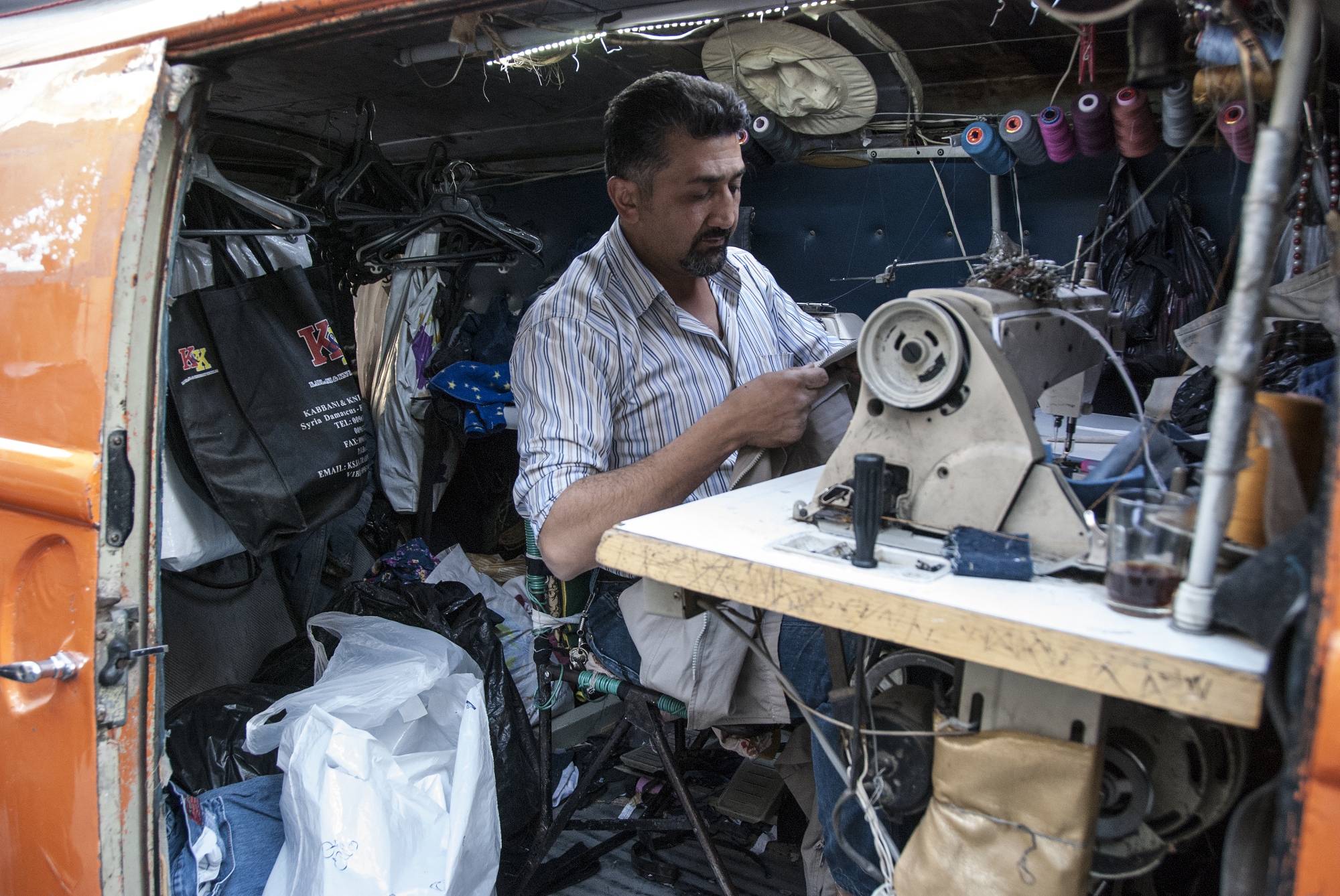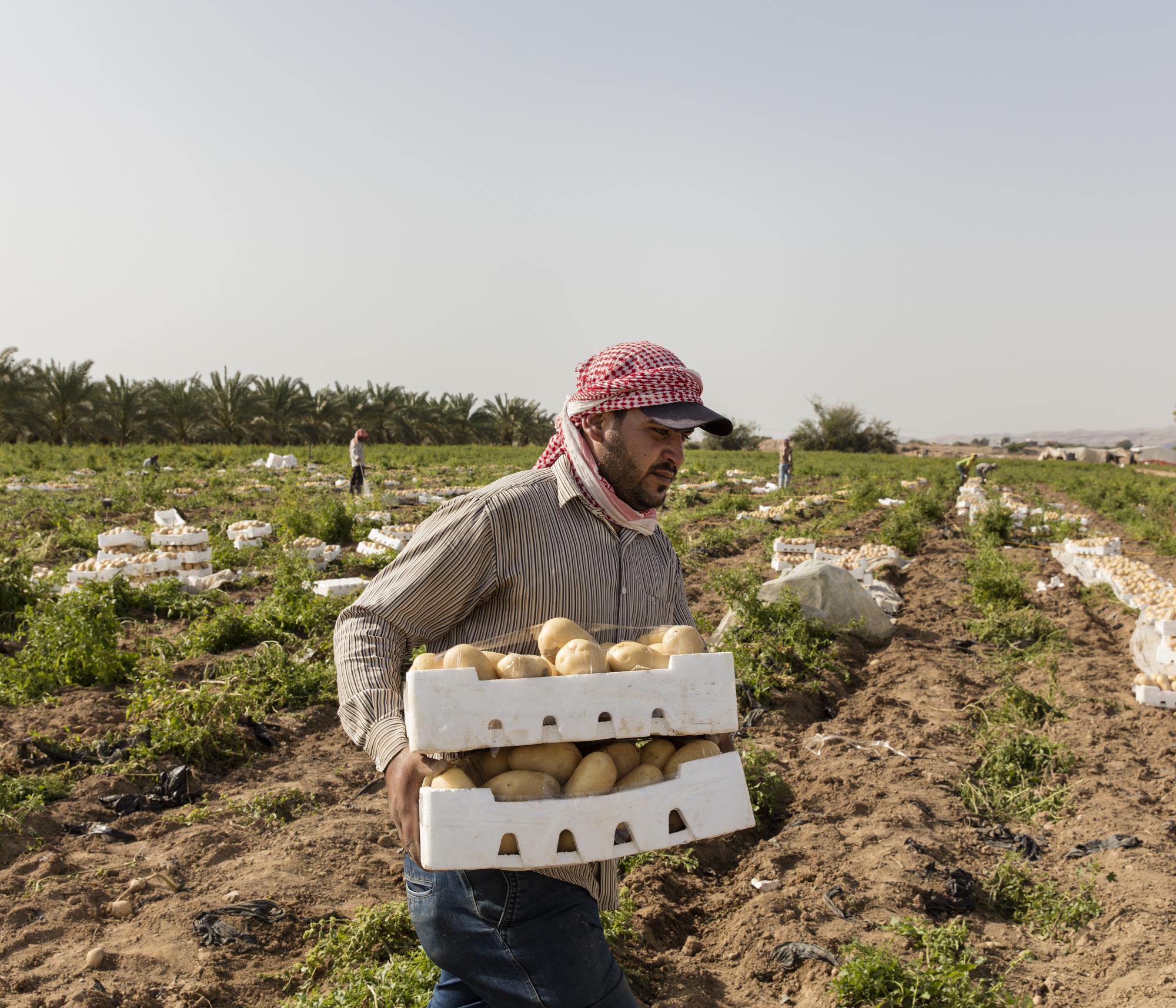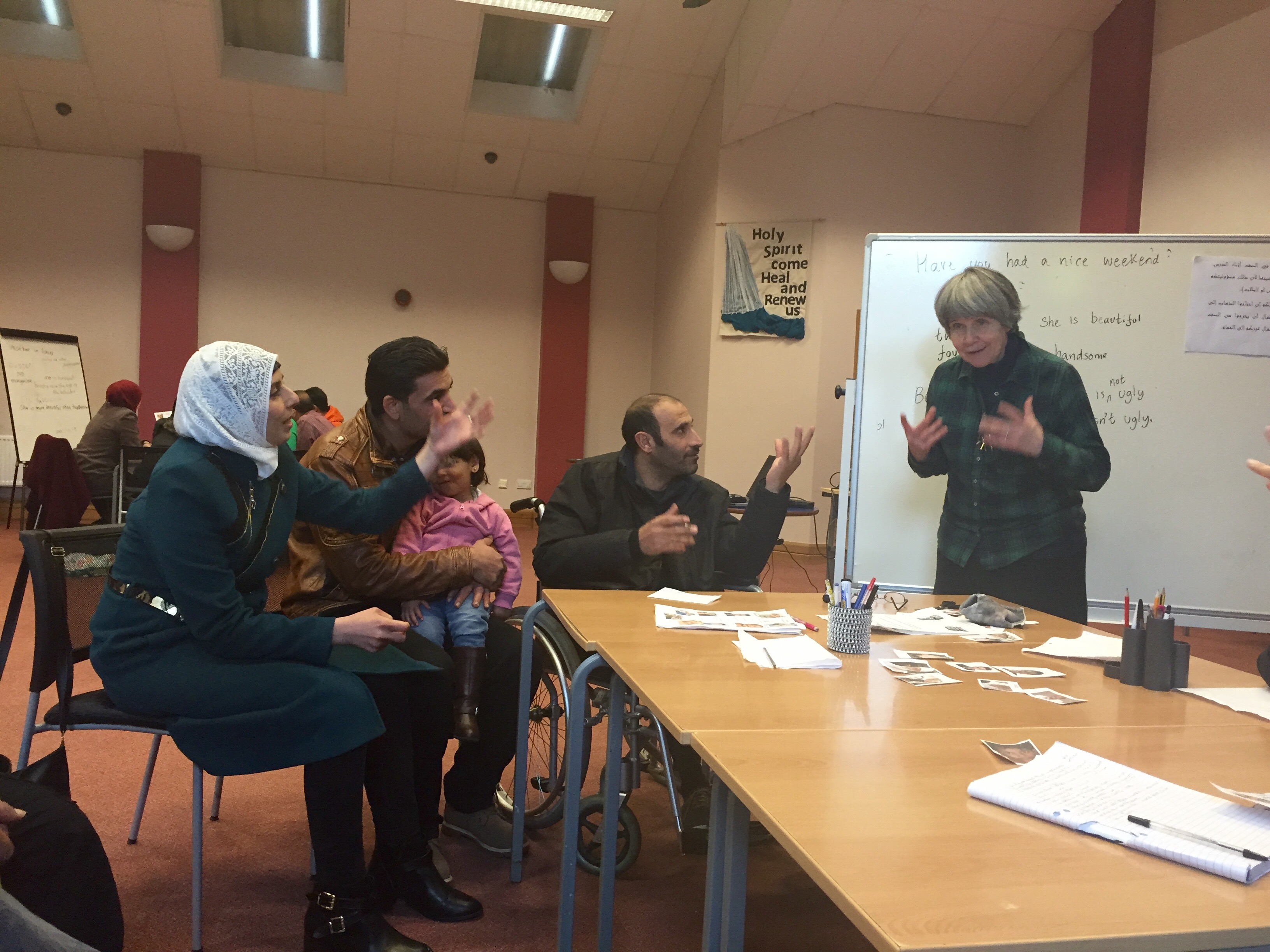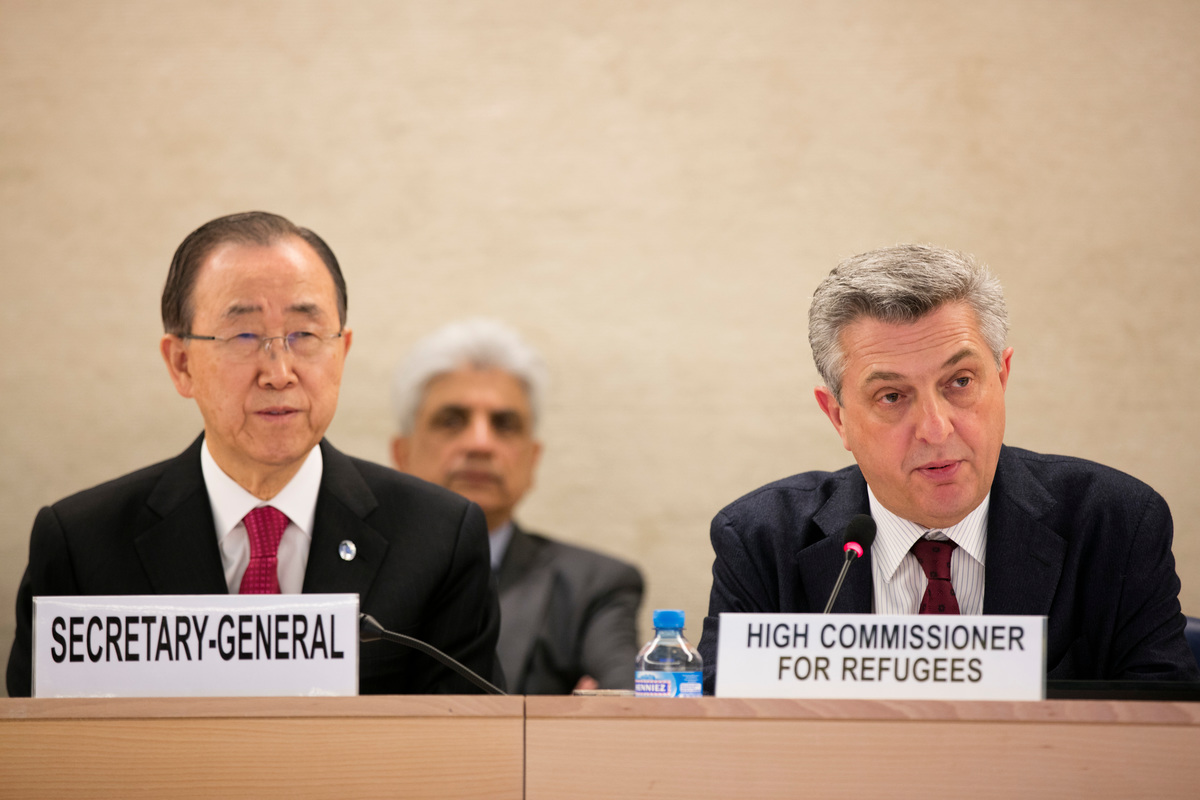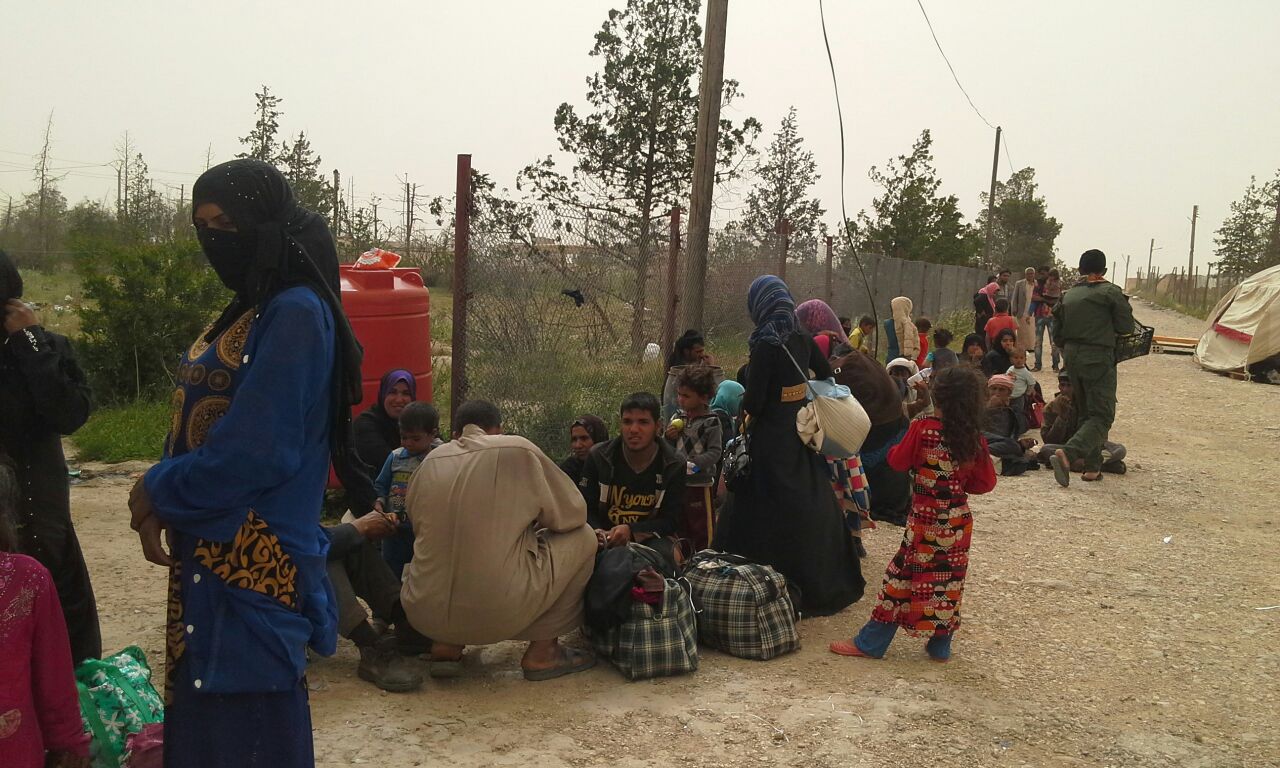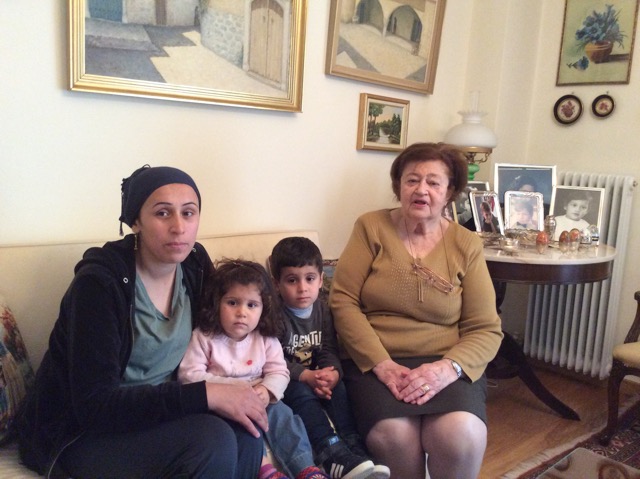Syrians fleeing by the hundreds daily, says UNHCR
Syrians fleeing by the hundreds daily, says UNHCR

GENEVA, August 3 (UNHCR) - As many as 1.5 million people could be displaced within Syria with little or no access to aid, warned the UN refugee agency on Friday as it sought to deliver supplies through the few remaining channels available.
As the fighting continues unabated, many people have been forced to flee their homes and seek refuge with host families or in makeshift shelters. "Many others are trapped, fearing the risk of being caught up in fighting or targeted during escape," UNHCR spokeswoman Melissa Fleming told journalists at a briefing in Geneva on Friday.
According to the Syrian Arab Red Crescent, 7,200 people are seeking refuge in 45 schools and six dormitories in Aleppo. Many are staying in mosques while others move from village to village to escape the violence. UNHCR staff in Aleppo report a complete breakdown in mobile coverage and internet connectivity.
Through SARC, UNHCR has been delivering basic materials to help families set up makeshift homes. But the supplies were blocked on Thursday when military forces sealed off Aleppo.
Violence is also spreading in Damascus. The UN Relief and Works Agency reported 20 people dead and 10 more wounded in Yarmouk, where many Palestinian refugees live. An Iraqi refugee said his son was shot in the Sayyda Zainab neighbourhood and later died in hospital. A Sudanese refugee was shot in the legs by armed groups.
UNHCR has been providing limited financial and other assistance to many of the needy refugees in Damascus and Al Hasakeh. About 700 refugees approached UNHCR in the capital for help and advice on a recent single day. Most of them say they are afraid of being attacked or robbed. Many are hiding in schools that are overwhelmed and lack sufficient hygiene facilities.
Some of the refugees are opting to return home. More than 20,000 Iraqi refugees have left Syria for Iraq since mid-July, including more than 5,200 on mostly government-assisted flights. The Al-Waleed border point has received its first Syrian refugees, two families who fled Aleppo and Damascus. They have been moved to Al-Waleed refugee camp.
There are now 12,049 Syrian refugees in Iraq and officials are expecting a further influx.
UNHCR is working to complete a second refugee camp in Al-Qa'im with local authorities and partners. Some 100 tents have been set up so far. Syrian families are being registered in their current locations in schools and public centres in preparation for the eventual move into Al-Qa'im camp.
Jordan, too, continues to move recent arrivals into the new Za'atri camp amid ongoing work to expand the camp. Some 9,500 new arrivals were registered in July alone, many in Ramtha in the north-west. In total more than 37,000 people have been registered so far and over 2,700 are awaiting registration. More than 80 per cent of them come from the Syrian cities of Homs and Dara'a. Beyond those registered, the Jordanian government estimates that some 150,000 Syrian refugees have entered the Kingdom since March last year.
Meanwhile those fleeing Aleppo and surrounding areas are arriving in Turkey at a daily rate of 400-600 people. More than 44,000 Syrians - nearly half below the age of 18 - are now hosted in eight camps in four border provinces. UNHCR staff are present in the provinces to provide technical advice and emergency shelter materials.
Lebanon continues to receive a steady stream of arrivals from Homs, Damascus, Dara'a and Aleppo. Most do not register with UNHCR, proceeding directly to Beirut, Saida or Tripoli to live with family and friends, or to rent apartments.
Of the more than 33,000 registered and 1,700 awaiting registration in Lebanon, many are living in poor and under-serviced communities in North Lebanon and Bekaa valley. "Most are women and children who have a myriad of needs and are reliant on support provided within the communities and by the UN and international and national partners," said Fleming, adding that UNHCR is working with partners and the government to prepare for a possible larger influx.

